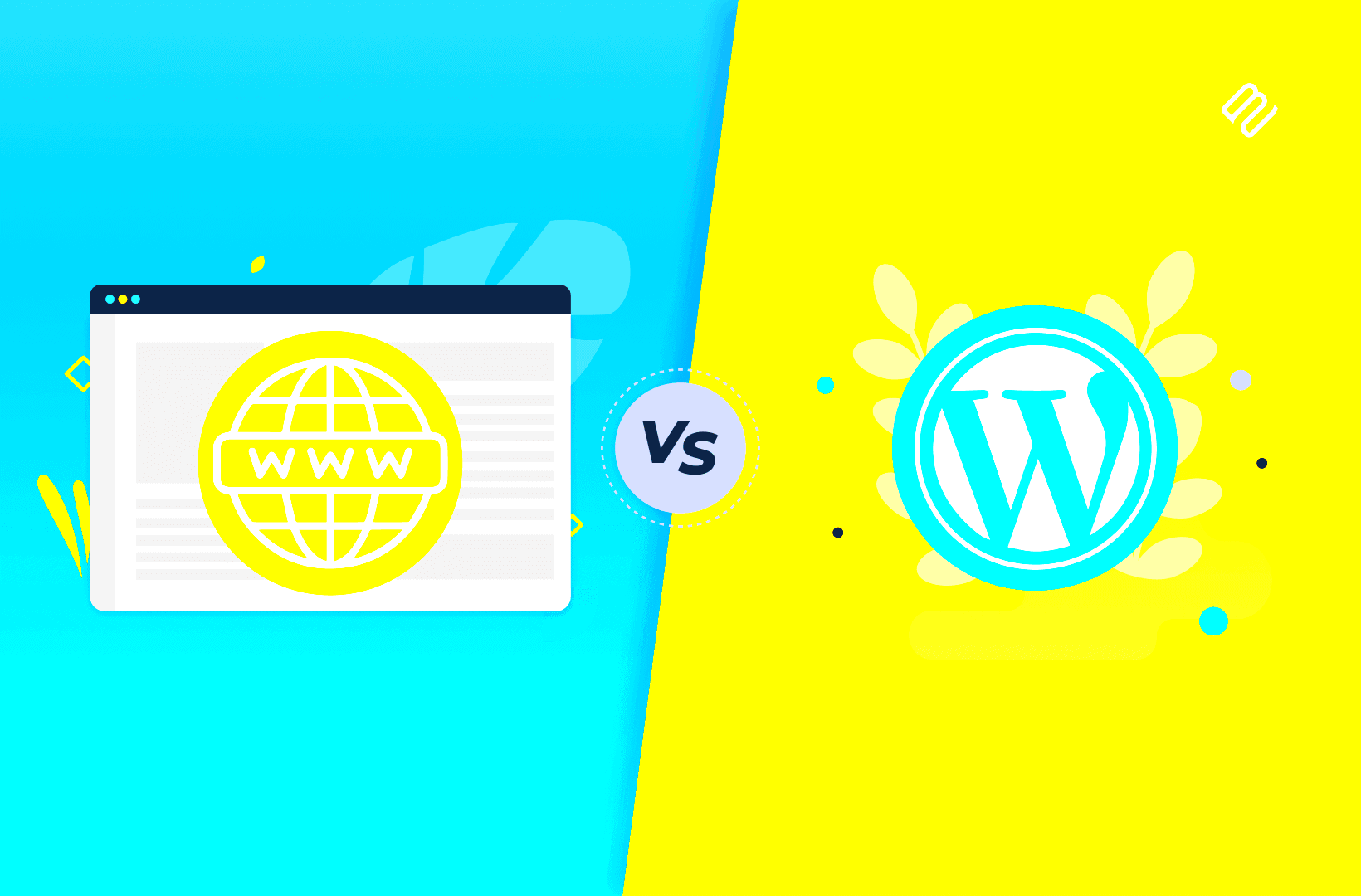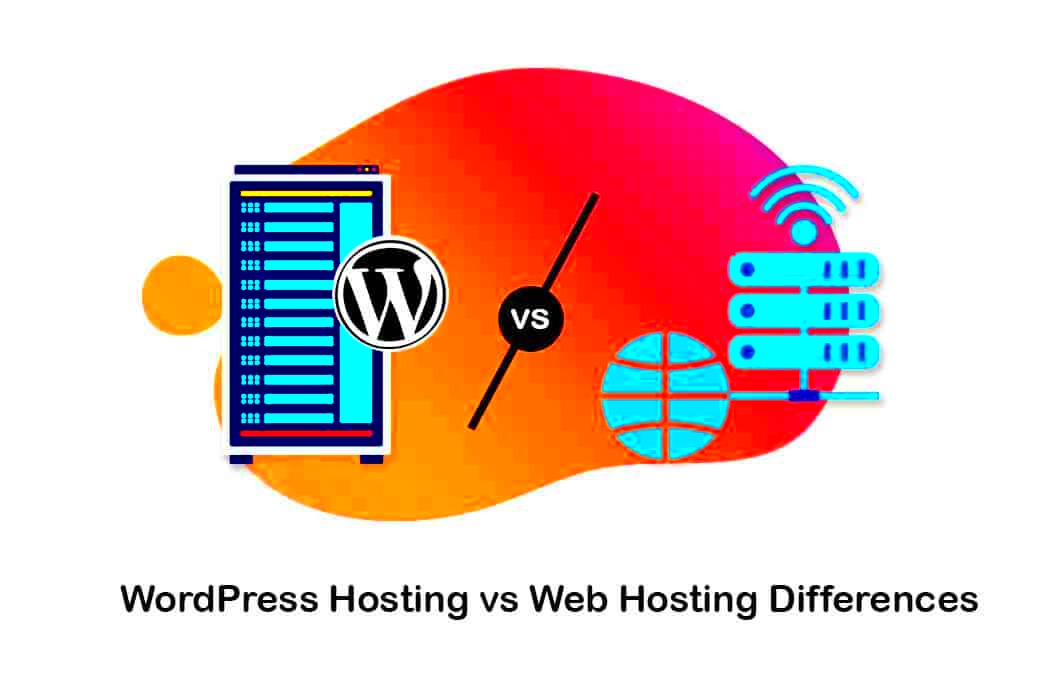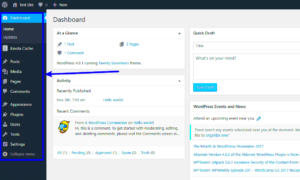When you’re diving into the digital landscape, understanding the types of hosting available is crucial. Hosting serves as the backbone of your online presence, whether you’re launching a personal blog, an e-commerce site, or a corporate platform. While it might seem like a technical ecosystem filled with jargon, breaking it down really helps. In this post, we’re going to explore two primary types of hosting: WordPress Hosting and Web Hosting, along with what sets them apart.
What is Web Hosting?

Web hosting is essentially a service that allows individuals and organizations to make their websites accessible on the internet. Think of it as renting a space on the internet where all your website files live. Here’s how it works:
- Storage Space: Your website needs a home, and web hosting provides that storage space on a server.
- Internet Connection: Web hosting companies make sure that your website is connected to the internet 24/7.
- Domain Name: While not always included, many web hosting services allow you to purchase a domain name that ties to your website.
- Security: Most web hosting plans come with security features to protect your site from cyber threats.
Web hosting can be categorized into several types, such as:
| Hosting Type | Description |
|---|---|
| Shared Hosting | Multiple websites share resources on a single server, making it budget-friendly but potentially slower. |
| VPS Hosting | A private section of a server is allocated to you, providing better performance and control. |
| Dedicated Hosting | You have an entire server to yourself, offering the best performance but at a higher cost. |
| Cloud Hosting | Your website pulls resources from multiple servers, making it highly scalable and reliable. |
In short, web hosting is a fundamental service that brings your website to life. Knowing its facets helps you choose the right hosting plan for your needs!
What is WordPress Hosting?
WordPress Hosting refers to a specialized type of web hosting tailored specifically for WordPress websites. Most web hosting companies provide various plans that can accommodate different content management systems (CMS), but
One of the standout features of WordPress Hosting is its ease of setup. Many providers offer one-click installations, which streamline the process so even beginners can get started without a hitch. This allows users to bypass the often-intimidating technical steps of manual installation.
Moreover, WordPress Hosting often includes built-in features like:
- Automatic Updates: Your WordPress site can be automatically updated, ensuring you always have the latest security patches and features.
- Enhanced Security: WordPress Hosting services typically incorporate advanced security measures specifically designed to protect WordPress sites from common vulnerabilities.
- Optimized Performance: Hosting providers use server configurations that improve the speed and performance of WordPress websites.
- Specialized Support: Customer support teams are often well-versed in WordPress-related issues, offering knowledgeable assistance when needed.
In summary, WordPress Hosting creates a user-friendly environment tailored to making sure your WordPress site runs smoothly, efficiently, and securely.
Key Differences Between WordPress Hosting and Web Hosting
While Web Hosting and WordPress Hosting might sound similar, they serve different purposes and cater to users with varying needs. Let’s break it down into key differences:
| Feature | WordPress Hosting | Web Hosting |
|---|---|---|
| Specialization | Designed specifically for WordPress sites | General hosting for various website types |
| Setup | One-click installation | Manual setup may be required |
| Speed | Optimized for WordPress performance | May vary based on server configuration |
| Support | Expert support for WordPress | General support for all types of hosting |
| Security Features | Advanced security for WordPress vulnerabilities | Basic security measures may be in place |
In short, if you’re building a WordPress site, choosing WordPress Hosting can make your life a whole lot easier, thanks to its tailored features and support. On the flip side, if you have multiple types of websites or specific hosting needs, general Web Hosting might be the way to go. Understanding these differences is key to making the right choice for your online presence.
5. Advantages of WordPress Hosting
When it comes to choosing a hosting service for your website, opting for WordPress hosting can bring forth a range of benefits tailored specifically for WordPress users. Here are some key advantages:
- Optimized Performance: WordPress hosting is finely tuned for WordPress sites, meaning that performance is maximized. From caching solutions to faster PHP processing, you’ll notice that your website loads quicker than on a standard web host.
- Easy Installation: With WordPress hosting, installation is often a breeze, thanks to one-click installation tools. This means you can have your site up and running in no time without having to deal with complex setup processes.
- Enhanced Security: Security is a huge concern for website owners, but with WordPress hosting, you get built-in security measures. Features like SSL certificates, firewalls, and regular malware scans are often included to keep your site safe.
- Automatic Updates: WordPress hosting services typically offer automatic updates for core WordPress software and plugins, which means you can focus on content creation instead of worrying about keeping everything updated.
- Dedicated Support: Most WordPress hosts offer specialized support from experts who understand WordPress inside and out. This can save you time and headaches when you encounter issues.
In summary, if you’re planning to build a WordPress site, choosing WordPress hosting comes with various benefits designed to enhance your experience, performance, and peace of mind.
6. Advantages of Web Hosting
While WordPress hosting has its perks, web hosting as a broader category also offers significant advantages that cater to various types of websites. Here’s what you should know:
- Flexibility: Web hosting is not restricted to any one platform or content management system. This flexibility means you can host websites built with HTML, CSS, or any other framework alongside WordPress if you choose.
- Cost-Effective Plans: Many web hosting providers offer a variety of pricing tiers, including affordable shared hosting options. This can be ideal if you’re just starting out and don’t want to break the bank.
- Greater Control: With web hosting, especially with plans like VPS or dedicated hosting, you gain significant control over server configurations. This allows for customization tailored to your specific needs.
- Scalability: As your website grows, you can easily upgrade your hosting plan. Whether you need more bandwidth, storage, or resources, reputable web hosting services provide scalable options.
- Multiple Domain Support: Many web hosting plans allow you to host multiple domains on a single account. This is particularly beneficial if you’re managing multiple sites under one roof.
In essence, if you’re considering building a different kind of site or want more control and flexibility, traditional web hosting may be the way to go – providing a solid foundation for whatever your web project may entail.
Who Should Choose WordPress Hosting?
If you’re someone who wants to create a blog, an e-commerce store, or any website built on the WordPress platform, then you should definitely consider WordPress hosting. Here are a few key groups of people who would greatly benefit from using WordPress hosting:
- Bloggers and Content Creators: If your primary focus is on publishing content, WordPress hosting offers optimized environments, making it easier for you to manage, customize, and keep your blog running smoothly.
- Small Business Owners: If you run a small business and want to establish an online presence using WordPress, specific WordPress hosting plans often include e-commerce tools, which make it straightforward to sell products or services online.
- Developers and Designers: For web developers and designers who frequently work with WordPress, specialized hosting can provide features like one-click installations, staging environments, and enhanced security, streamlining your workflow.
- Users Who Need Support: If you’re not tech-savvy and might require assistance, WordPress hosting usually comes with customer support tailored for WordPress-related issues, ensuring you don’t feel lost.
In summary, if your website utilizes WordPress, opting for WordPress hosting not only enhances performance but also provides specialized support tailored to the unique needs of WordPress users.
Who Should Choose Web Hosting?
Web hosting, on the other hand, provides a more general platform for building various types of websites. If your needs extend beyond WordPress or if you’re working with different technologies, then traditional web hosting may be the better choice for you. Here are some groups of individuals and businesses that might find web hosting more beneficial:
- Users of Non-WordPress Platforms: If your website is based on platforms like Joomla, Drupal, or if it’s a custom-built site, general web hosting is designed to accommodate multiple content management systems.
- Developers Working with Multiple Technologies: For developers who need flexibility in programming languages and frameworks (like PHP, Ruby, or Python), standard web hosting often supports a wider range of technologies.
- Businesses with Custom Needs: Companies that require specific configurations, advanced security protocols, or specialized applications might find dedicated or VPS hosting services more suitable for their complex demands.
- Those Seeking Cost-Effectiveness: If you’re on a tight budget and don’t mind a bit of configuration, basic web hosting can be a great starting point, offering low-cost options that meet essential needs.
To sum it up, if you need flexibility, support for various technologies, or have specific business objectives that require customized solutions, traditional web hosting might be a better fit for you.
How to Choose Between WordPress Hosting and Web Hosting
Choosing between WordPress hosting and regular web hosting can feel a bit like navigating a maze, especially for beginners. So, how do you make the right decision? Here are some factors to consider that will guide you in making an informed choice:
- Your Skill Level: If you’re a newbie, WordPress hosting is often simpler and more user-friendly. It typically comes with pre-installed WordPress software, so you can jump right into creating content. On the other hand, if you’re tech-savvy and enjoy a hands-on approach, regular web hosting might let you tailor your website even more.
- Type of Website: Think about what you’re building. If it’s a blog, portfolio, or any site based on WordPress, WordPress hosting is definitely the way to go. But if you’re developing a larger-scale application or an e-commerce site needing custom frameworks, standard web hosting might suit your needs better.
- Budget: Pricing can vary significantly. While WordPress hosting plans may come with specialized features, they could also be more expensive. Regular web hosting might offer more flexibility that aligns with a tighter budget, so assess what works financially for you.
- Future Scalability: Consider where you want your website to go. If you anticipate heavy traffic or potential growth, you might want to choose hosting that can easily accommodate those changes. Many WordPress hosting services offer scalability features tailored for blogs and content-heavy sites.
- Support Needs: Evaluate how much support you think you’ll need. WordPress-specific hosts often provide specialized support teams familiar with the intricacies of the platform, while general web hosts may have broader but less tailored support.
By weighing these factors carefully, you’ll be better equipped to choose between WordPress hosting and regular web hosting that best fits your unique needs.
Conclusion
In the end, the choice between WordPress hosting and regular web hosting really boils down to your specific website needs, goals, and technical skills. Here are a few takeaways to consider:
- WordPress Hosting: Ideal for those who want ease of use, specialized support, and a quick setup for WordPress-based sites.
- Web Hosting: A more flexible option that supports a variety of websites and applications, often at a more cost-effective rate.
Ultimately, both hosting types have their unique advantages, so the key is to reflect on your priorities. If you’re planning to create a simple blog or portfolio, WordPress hosting can give you the tools you need right out of the box. However, if you have diverse hosting requirements and possibly unique applications, regular web hosting could offer that versatility.
So, take a moment to evaluate your needs, budget, and long-term goals, and just make the choice that resonates with you. Happy hosting!



